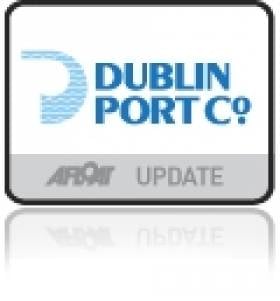Displaying items by tag: Terminal 1
RMR Shipping Increase Irish-West African Sailings
Dublin Port Company has welcomed RMR Shipping's new increased frequency of its service to West Africa, from a monthly to fortnightly service starting next month, writes Jehan Ashmore.
The direct service which began in 2009 using a single vessel from the capital to Nigeria, Ghana with calls to Lagos and Takoradi, is set to gain a second ship as demand for the service rises.
Two 157-trailer capacity ro-ro sisters are to be deployed on the route, they are the 23,000 gross tonnes sisters Celandine and Celestine. The Belgium-flagged pair both built in 2000 will take 18-days to transit between Dublin and Ghana.
The next sailing to Dublin is due on 5 July when the Celandine (PHOTO) is to dock at berth 51a, which is one of three berths located in the ports multi-user ferryport Terminal 1, shared by Irish Ferries, Stena Line and seasonal services of the Isle of Man Steam Packet Company.
Commenting on the development, Eamonn O'Reilly, Chief Executive Dublin Port Company said: "We are delighted with this development. Anything which increases the link between Ireland and emerging economies beyond Europe has got to be good for exports.
He added, "The service to Takoradi complements our involvement with Irish Aid from 2008 to 2010 in delivering an international training programme for ports in emerging countries including Ghana. The TrainForTrade programme was delivered with UNCTAD and we are hopeful of being able to announce a follow-up to the first programme in the coming months.
The development of RMR Shipping on the direct sea freight link was also welcomed by the Irish Exporters Association (IEA) whose chief executive John Whelan commented that exports to Nigeria last year exceeded €200m, the second largest market for Irish goods into Africa.





























































